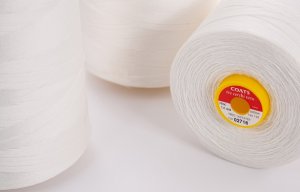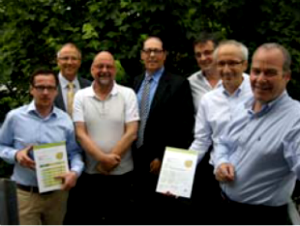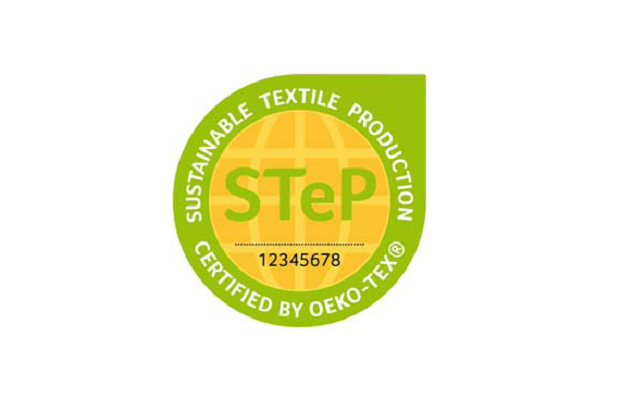
Coats launches BCI certified thread
The Swiss yarn manufacturer Hermann Buhler was the first company to receive a certificate in line with the new certification system ‘Sustainable Textile Production (STeP) by Oeko-Tex’, developed by the International Oeko-Tex Association. Serge Rolle and Adrian Meili from the Swiss textile testing institute Testex presented the certificate to the team of Martin Kägi, CEO Buhler Group, and René Reichmuth, CEO Buhler, on 4 July 2013.

23rd July 2013
Knitting Industry
|
Frankfurt/Zurich
Serge Rolle and Adrian Meili from the Swiss textile testing institute Testex presented the certificate to the team of Martin Kägi, CEO Buhler Group, and René Reichmuth, CEO Buhler, on 4 July 2013.
Martin Kägi commented: “The issue of sustainability is more and more in the public eye. Our company has already been employing an integrated strategy for some time, taking into account the manufacturing of first rate yarns as a basis for high-quality durable clothing as well as environmentally friendly production conditions. The interactive STeP web tool assessment quickly and unbureaucratically recorded our modern, effective production methods and the initiatives of our committed employees on a process and product level.”
The International Oeko-Tex Association, based in Zurich, have developed STeP ‘Sustainable Textile Production’ to provide globally active textile brands, retail companies and manufacturers with an objective and transparent tool for communicating their sustainable production conditions to the public in a clear and credible manner.

The key point of the new STeP certification is the modular analysis of all relevant company areas such as quality management, use of chemicals, environmental protection, environmental management, social responsibility, and health and safety. Precondition for certification is the successful auditing of the production facilities through one of the associated Oeko-Tex institutes.
Existing company certificates such as ISO 9000, ISO 14001, SA 8000 and others are recognised for STeP certification and will be taken into account for evaluation of the individual modules.
Adrian Meili from Testex explained: “Textile and clothing manufacturers can make their production processes much more efficient on the basis of a STeP certification. With the scorings for the individual areas, our system helps them to determine their company's positioning with regard to sustainability and identifies areas for improvement. This transparent assessment in the modules and in the questions is provided by the new, modern STeP certification system which has replaced the company-based certification system Oeko-Tex Standard 1000 as of July 2013.”
Hermann Buhler with more than 200 years of experience, provides an extensive range of high quality yarns. The company is a supplier to many international circular knitting and warp knitting mills.
According to Oeko-Tex Standard 100, Hermann Buhler have been documenting the human ecology optimisation of its yarns since 1993 and since 2007 the factory has been certified as an environmentally friendly and socially acceptable production facility in line with the requirements of Oeko-Tex Standard 1000.

Business intelligence for the fibre, textiles and apparel industries: technologies, innovations, markets, investments, trade policy, sourcing, strategy...
Find out more